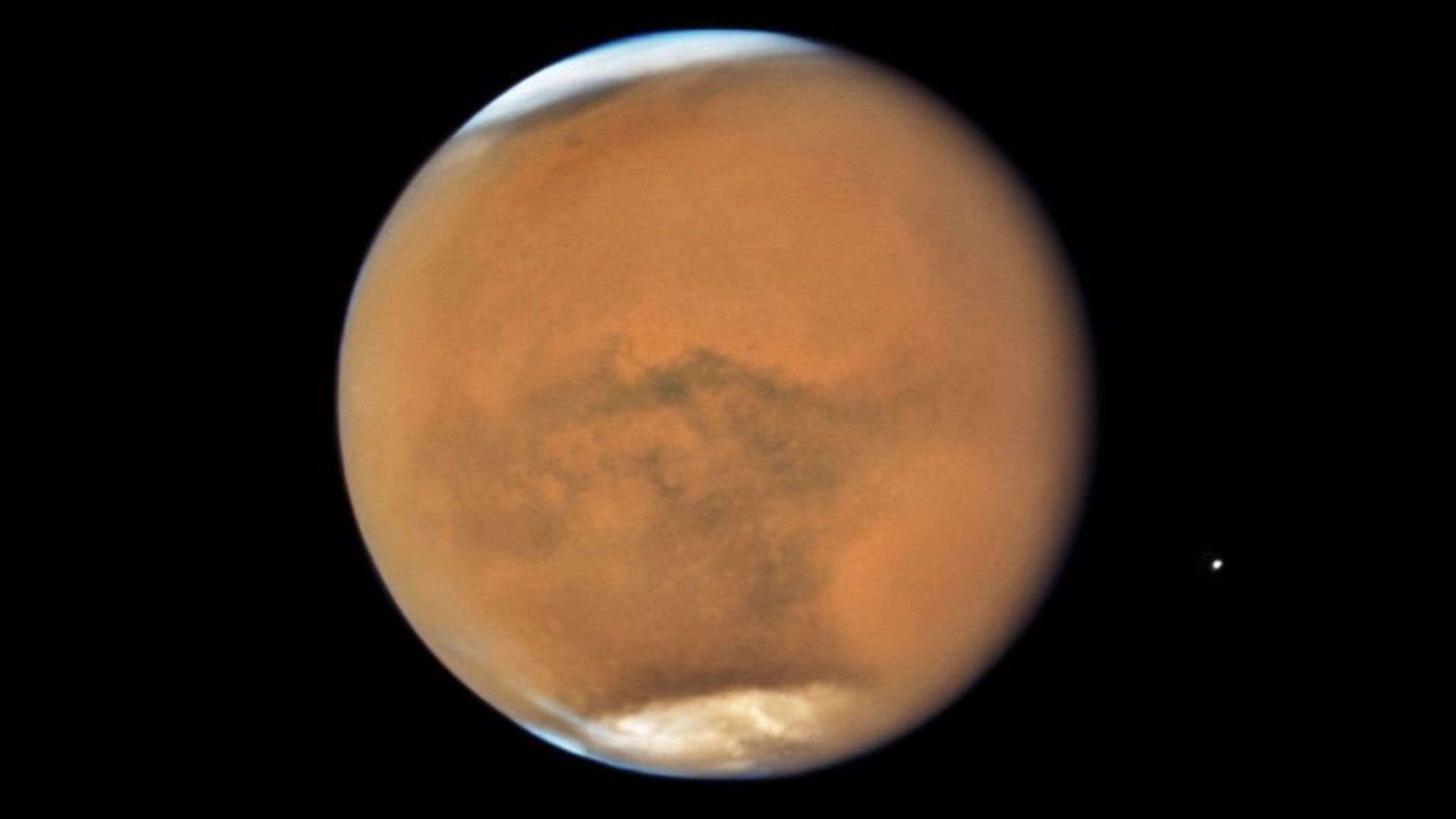Apr 23, 2019 - Science
NASA looks to engineer microbes to make spider silk for astronauts on Mars
Add Axios as your preferred source to
see more of our stories on Google.

Mars seen in 2018. Photo: NASA/ESA/STScI
Add Axios as your preferred source to
see more of our stories on Google.

Mars seen in 2018. Photo: NASA/ESA/STScI